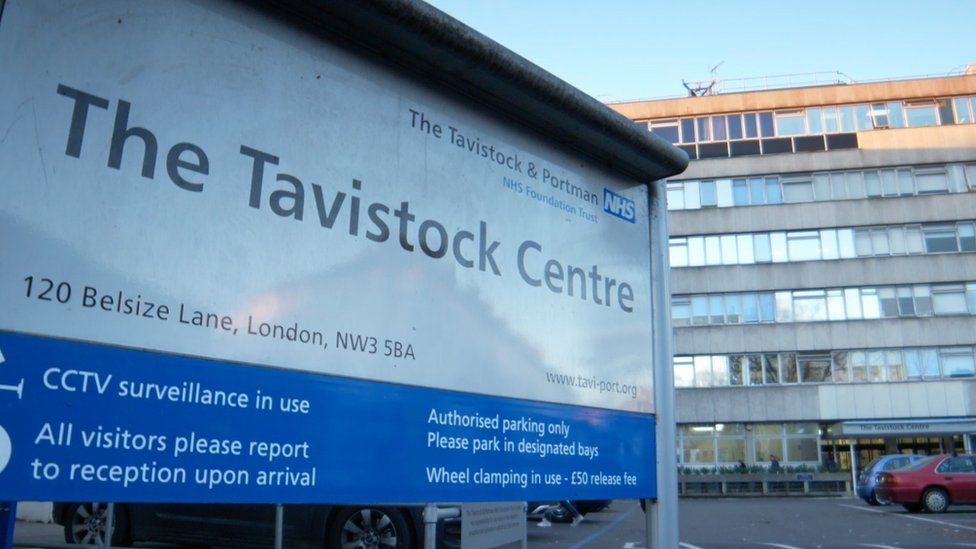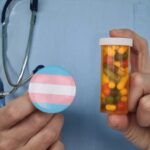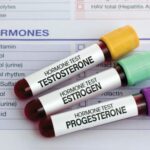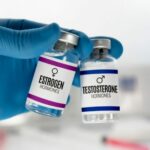Blog Post
The UK’s National Health Service changes stance on puberty blockers and admits we don’t know longterm effects
This story by James Kirkup in The Spectator is very, very important for several reasons. For years now, trans activists and their allies have been furiously informing us that puberty blockers and the battery of drugs that gender dysphoric kids take are not only safe, but reversible. They have been trotting out this lie in the face of all available evidence, including the first-hand testimonies of those attempting to de-transition. Now, it turns out, even the UK’s National Health Service, which has almost entirely capitulated to the demands of the trans activists, has quietly modified their stance. From Kirkup:
Imagine you have a child who says they believe they were born in the wrong body, describing what amounts to a fundamental and painful mismatch between their biological sex and their gender identity. Imagine the child you see as your daughter declaring that they are in fact a boy. Where would you turn for information? No doubt a lot of people in such a position would consult the NHS. That ‘mismatch’, after all, could be a sign of gender dysphoria, a condition recognised – and treated – by the health service.
What would you find if you looked up this issue on the excellent and comprehensive NHS website? First, you’d see reassuring words telling you that the NHS can help your child:
“‘Treatment for gender dysphoria aims to help people live the way they want to, in their preferred gender identity or as non-binary.’
Perhaps you might wonder about the treatments for young children in this context. Maybe you’ve seen headlines about children being given hormone therapy drugs that change their bodies, or heard things about the long-term effects of medical interventions that made you worry.
In which case, you might well have been reassured by the NHS website’s soothing words about hormone therapy for children.
Here’s what you would have read on that topic:
“‘Hormone therapy
If your child has gender dysphoria and they’ve reached puberty, they could be treated with gonadotrophin-releasing hormone (GnRH) analogues. These are synthetic (man-made) hormones that suppress the hormones naturally produced by the body.
Some of the changes that take place during puberty are driven by hormones. For example, the hormone testosterone, which is produced by the testes in boys, helps stimulate penis growth.
GnRH analogues suppress the hormones produced by your child’s body. They also suppress puberty and can help delay potentially distressing physical changes caused by their body becoming even more like that of their biological sex, until they’re old enough for the treatment options discussed below.
GnRH analogues will only be considered for your child if assessments have found they’re experiencing clear distress and have a strong desire to live as their gender identity.
The effects of treatment with GnRH analogues are considered to be fully reversible, so treatment can usually be stopped at any time….’
(My bold.)
Fully reversible, eh? That doesn’t sound so bad, does it? Maybe all those scary headlines were cooked up by nasty scaremongering types, the horrid transphobes you’ve heard about from the nice charities you looked up online.
But hang on a moment. There’s an issue here. Because those words I’ve quoted about, the nice ones about ‘fully reversible’ treatment, are not, in fact what the NHS website says. Not any more, anyway.
That’s what the NHS used to say about hormone therapy for children. Then, last week, the guidance on the site was quietly changed to something very different.
Here’s what the site now says instead:
“‘Hormone therapy in children and young people
Some young people with lasting signs of gender dysphoria and who meet strict criteria may be referred to a hormone specialist (consultant endocrinologist) to see if they can take hormone blockers as they reach puberty. This is in addition to psychological support.
These hormone blockers (gonadotrophin-releasing hormone analogues) pause the physical changes of puberty, such as breast development or facial hair.
Little is known about the long-term side effects of hormone or puberty blockers in children with gender dysphoria.
Although the Gender Identity Development Service (GIDS) advises this is a physically reversible treatment if stopped, it is not known what the psychological effects may be.
It’s also not known whether hormone blockers affect the development of the teenage brain or children’s bones. Side effects may also include hot flushes, fatigue and mood alterations.
From the age of 16, teenagers who’ve been on hormone blockers for at least 12 months may be given cross-sex hormones, also known as gender-affirming hormones.
These hormones cause some irreversible changes, such as:
breast development (caused by taking oestrogen)
breaking or deepening of the voice (caused by taking testosterone)
Long-term cross-sex hormone treatment may cause temporary or even permanent infertility.
However, as cross-sex hormones affect people differently, they should not be considered a reliable form of contraception.
There is some uncertainty about the risks of long-term cross-sex hormone treatment.
The NHS in England is currently reviewing the evidence on the use of cross-sex hormones by the Gender Identity Development Service.’
(My bold.)
Which is all rather less reassuring, but also more accurate, at least if you believe experts such as Carl Heneghan, director of the Centre of Evidence-Based Medicine at Oxford and Editor in Chief of BMJ Evidence-Based Medicine. He has been saying for some time that we simply do not know enough about the long-term effects of GnRH analogues on children, not least since these drugs were not, in fact, formulated for this purpose.
He’s not alone, either. Indeed, to anyone who has looked into this issue in a bit of detail, none of the alarming things in that new NHS website document will come as much of a surprise. To some, the first question that occurs here is: why has it taken the NHS so long to say these things?
There are other questions too. Some are about some relatively minor points of process: why has the NHS so significantly changed its main publication on hormone treatment for children without any announcement or fanfare? There is nothing on that page to reveal the change beyond a footnote that the page was revised on May 28 and giving no details. (The only way to read the old text is via the excellent Wayback Machine.)
But some of the questions arising from that change are rather bigger. Given that the NHS now says that hormone therapy for gender-variant children has unknown long-term effects on the physical and mental health of those children, why is the NHS still using such treatments on children?
And what are the children and parents who were reassured by those earlier NHS words supposed to think now that the same service that issued those treatments is now admitting it doesn’t know what their long-term effects will be?
There are other questions too, lots of them. We can only hope that, when time and coronavirus allow, the people we elect to ensure those questions are asked and answered finally do so.
This should be front-page news. NBC has claimed that puberty blockers lower suicide risks for kids. A CNN headline called puberty blockers “life-saving.” Now, not even the trans-friendly NHS is willing to promote the narrative that we know what the long-term effects of these drugs are.
The medical malpractice lawsuits that emerge from this grotesque social experiment are going to be something to behold.








